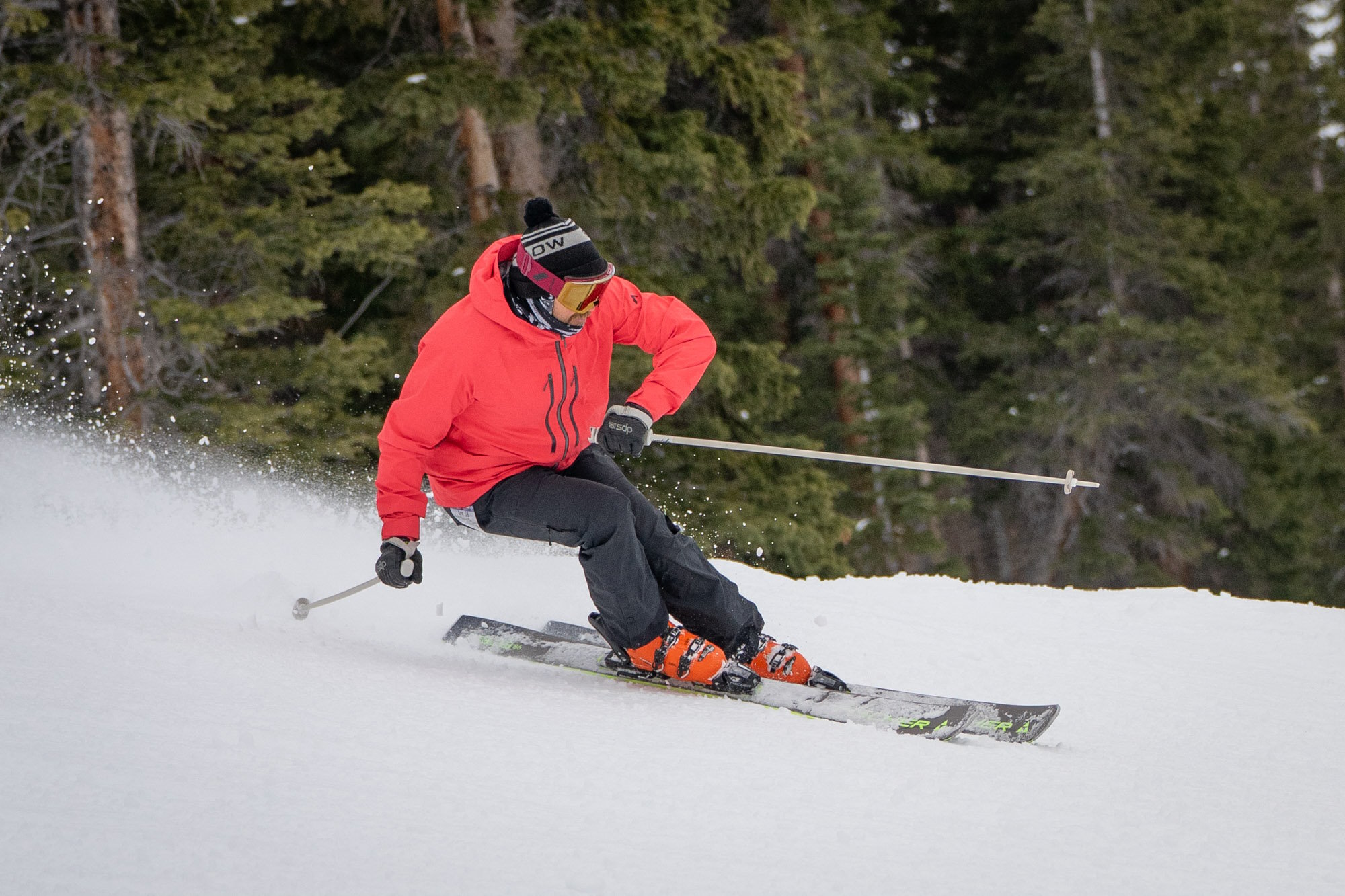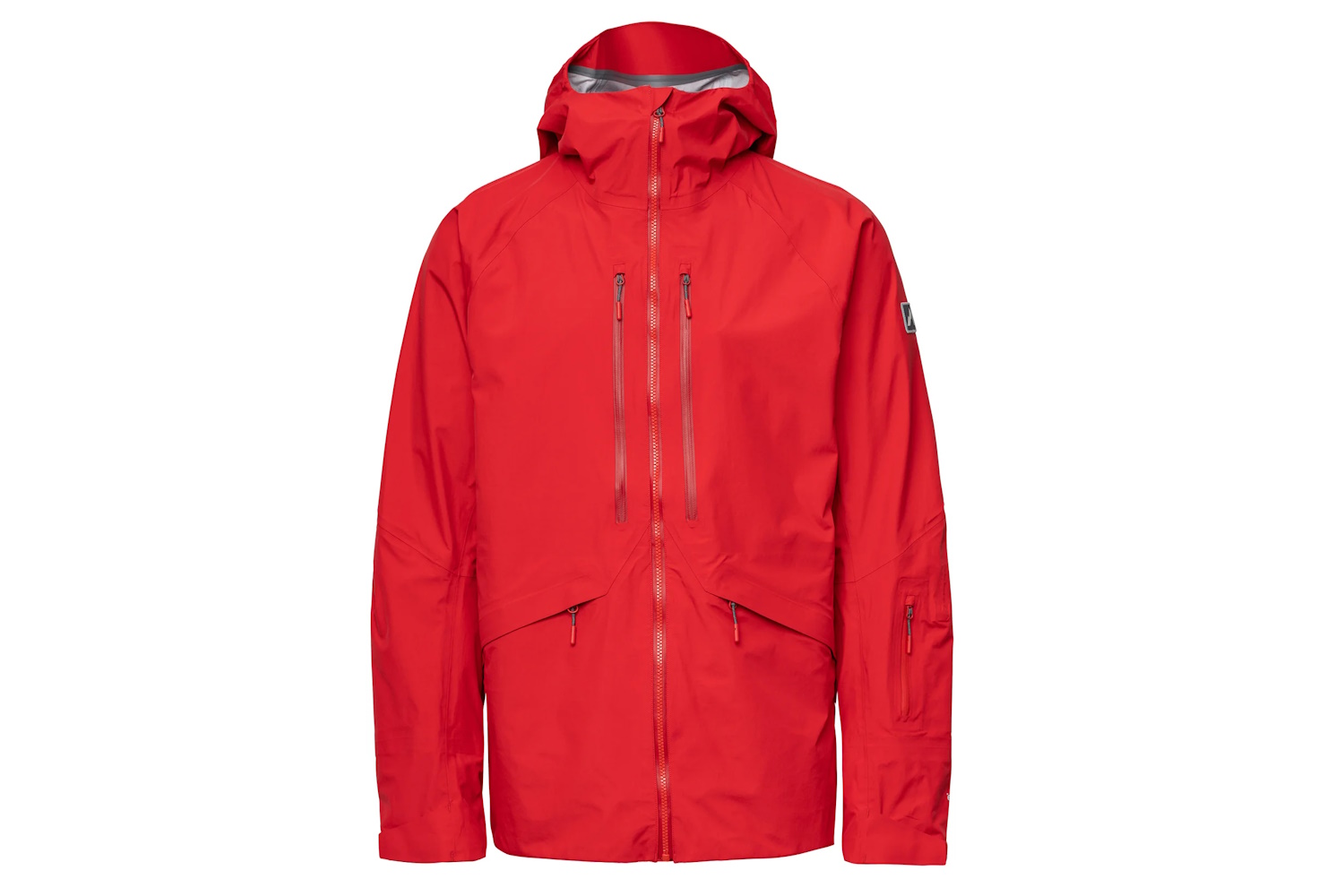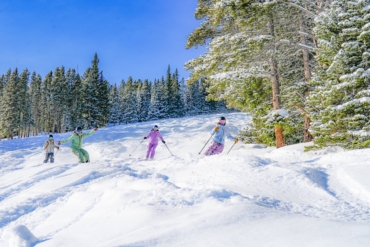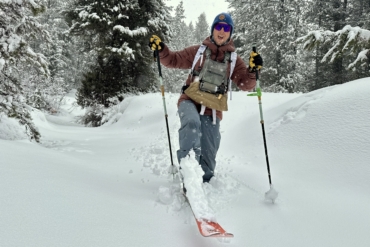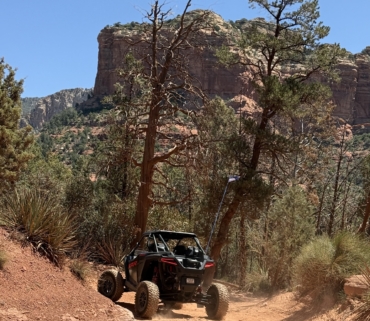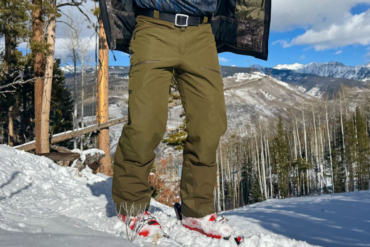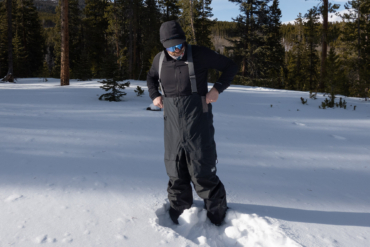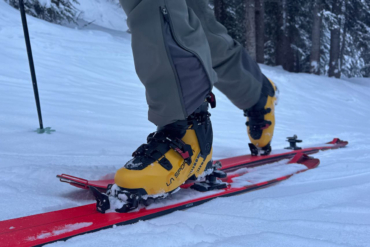Most ski shells turn into sweaty coffins in the backcountry. And, to be fair, most backcountry ski shells don’t cut it in bad weather at the resort. With the growth of backcountry skiing, more apparel brands are making jackets for either side of the rope line, but the Strafe Nomad 3L Ski Jacket is one of the few that does it well.
This “freeride” jacket hangs long and fits loosely for plenty of freedom of movement, but is not so steezy that it bunches up and feels ridiculous on the skintrack. Strafe uses an eVent waterproof and breathable membrane here instead of the ubiquitous GORE-TEX and gets a lighter, more breathable shell as a result.
Lots of large pockets and the usual ski-specific touches sweeten the pot. But at the end of the day, the Nomad stands out for its ability to be used all year long, whether you’re touring or riding lifts. The price tag hurts a bit, but less so if you can replace two jackets with this one.
In short: The Strafe Nomad 3L Ski Jacket ($679) threads the needle of being tough enough for midwinter resort storm skiing but light and breathable enough for high-output ski touring. Pure resort skiers may want something a touch heavier, but proper layering will let you use this shell year-round anywhere you ski.
Read our full review below or The Best Ski Jackets Buyer’s Guide to see how the Strafe Nomad stacks up.
-
Weather Protection
8.0
-
Fit and Mobility
7.9
-
Durability and Construction Quality
8.0
-
Breathability and Ventilation
7.9
- Fit: Relaxed
- Insulation: None
- Shell: Ripstop 3-layer eVent DV Alpine shell; 100% Nylon face with 20D Tricot backer
- Waterproof rating (mm): 20,000
- Breathability (g): 20,000
- Weight: 625 g
Pros
- Excellent breathability
- Lightweight
- Relaxed fit
Cons
- Expensive
- Thin for cold resort days
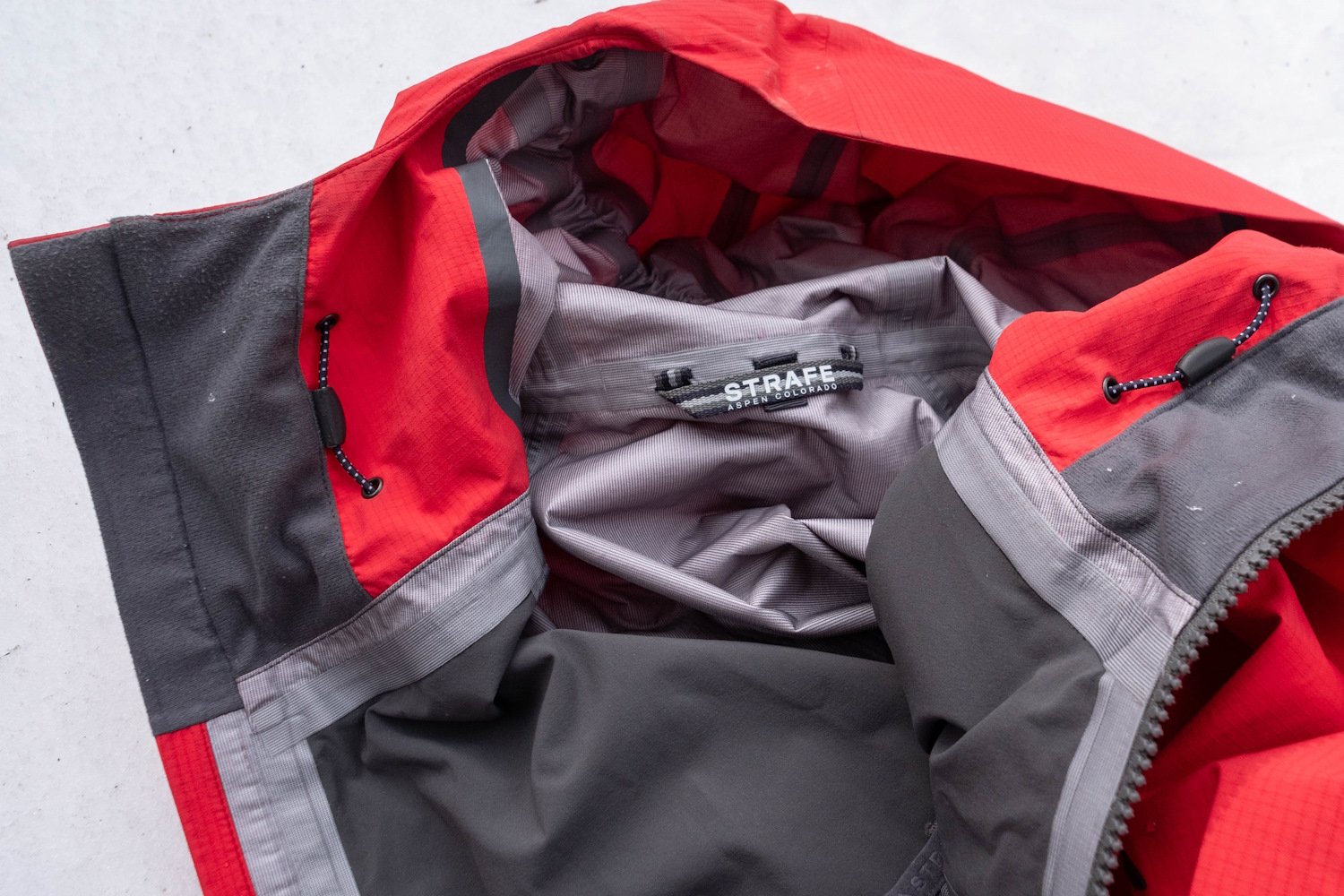
Strafe Nomad 3L Ski Jacket Review
Aspen-based Strafe is among a handful of smaller, ski-town ski apparel brands good enough to have traction beyond its home region. However, the proportion of skiers wearing Strafe grows exponentially the closer you get to Strafe HQ at the base of Aspen Highlands.
Aspen conjures up images of fur and gold-plated everything. But Strafe is performance-oriented and while somewhat pricey (about on par with Patagonia, for example), it is not reserved for the 1%. The brand was founded in 2011 by accomplished ski mountaineer athletes John and Pete Gaston. And the apparel, including the Nomad jacket, reflects the need for high-output ready gear.
The Nomad Jacket has been in the Strafe lineup for over a decade. The 2024-25 season edition only received a minor functional update: a slightly thicker face fabric. Strafe’s designer, Pia Halloran, told me, “We went from a 110g/m2 mini ripstop to a 135g/m2 medium ripstop, increasing durability and improving the handfeel.”
I tested the Nomad Jacket over 10 days of backcountry touring and resort skiing between the Loveland and Breckenridge Ski areas. My testing fell in late April and early May. But topping out at an elevation of nearly 13,000 feet in stormy conditions presented midwinter-like conditions to contrast with steamy, sunny spring days.
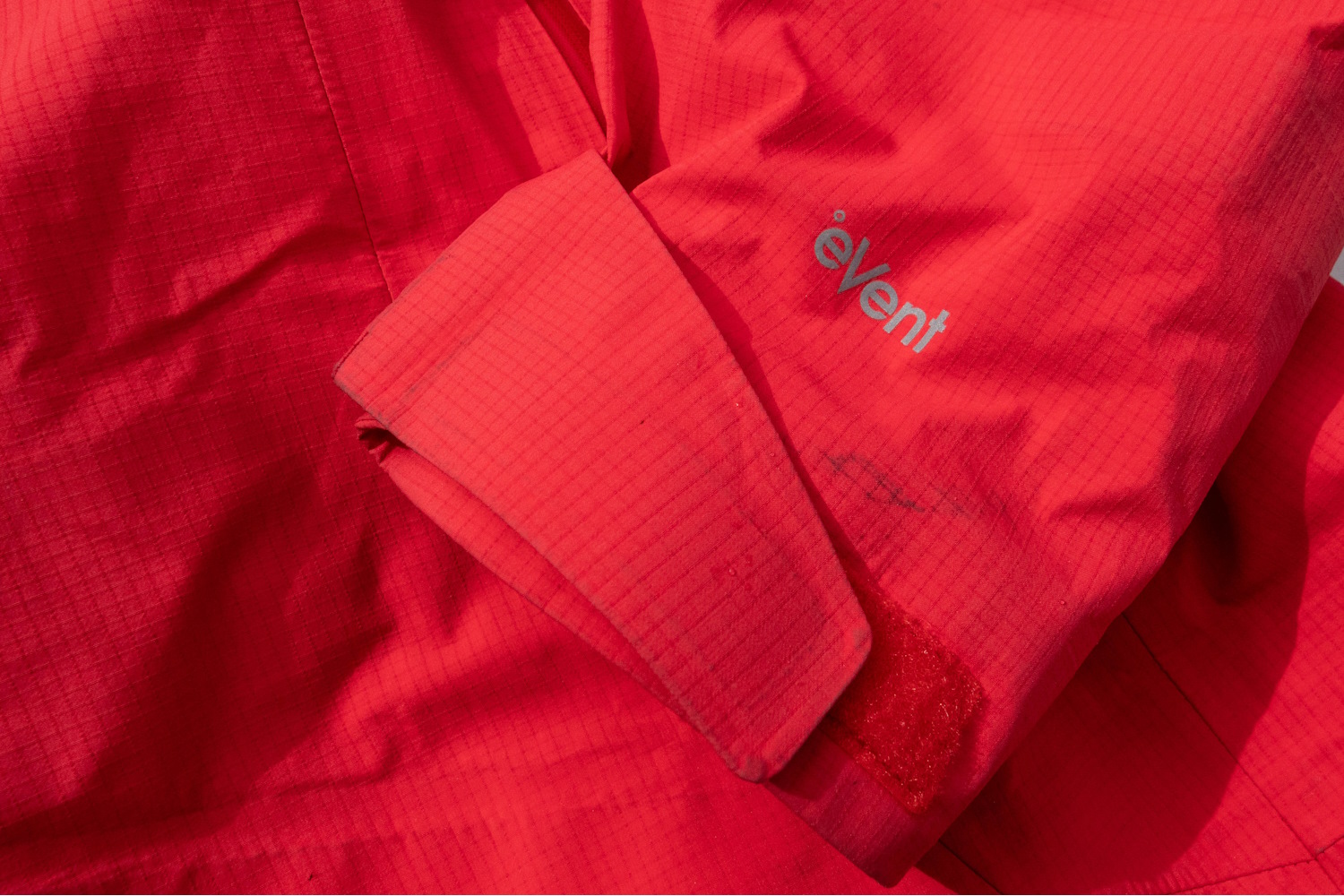
Lightweight, Breathable Performance for Uphilling
There are plenty of capable resort-oriented ski shells, and you can read about our favorites in the GearJunkie Best Ski Jackets Buyer’s Guide.
What’s harder to come by are resort-ready shells that can actually pull double duty in the backcountry.
I’ve tested more than a few shells claiming to do both. They’re often slightly lighter weight but nowhere near breathable enough for high-output uphilling in anything but the coldest conditions.
The Nomad 3L is noticeably lighter than most ski shells without even needing to put it on. The handfeel is somewhere between a sturdy windbreaker and a heavy-duty GORE-TEX ski shell. The weight (625 g) is light but not out of the normal range for a 3L shell. Patagonia’s Untracked Jacket is about the same. The Stio Environ Jacket is 31% heavier, for example.
The difference between the Nomad and most other ski shells is the choice of eVent DV Alpine membrane in place of one of the GORE-TEX products. I won’t fake being a materials engineer, but the eVent fabric uses a simpler construction than GORE-TEX that’s lighter and prioritizes breathability over waterproofing. The official specs bear this out: 20K breathability and 16K waterproofing.
Air Permeable Membrane: Ideal for Backcountry
It’s also “air permeable,” which sounds an awful lot like breathable, but there’s a difference.
GORE-TEX-type waterproof/breathable membranes release water vapor once you start sweating. This is usually fine in the resort environment where you’re going hard and then cooling off on a chairlift. In the backcountry, where you’re mostly churning out body heat for hours, your baselayers will already be damp by the time your shell starts releasing water vapor.
Here, the Nomad’s air-permeable fabric actually permits airflow without requiring you to sweat first, helping you avoid drenching your baselayers and maintaining a comfortable body temperature, as long as it’s not too hot out. This also means the jacket feels cooler. So, if you run cold and only resort ski, I’m sorry you’ve read this far. This jacket probably isn’t for you.
The advantage of the cooler-running Nomad is the flexibility. I was able to add a midlayer and resort ski comfortably in high winds and temps in the teens. The 16K waterproofing is more than adequate for my normal ski conditions in Colorado, which involve high elevations, low temps, and lighter precipitation. Pacific Northwestern skiers may want more.
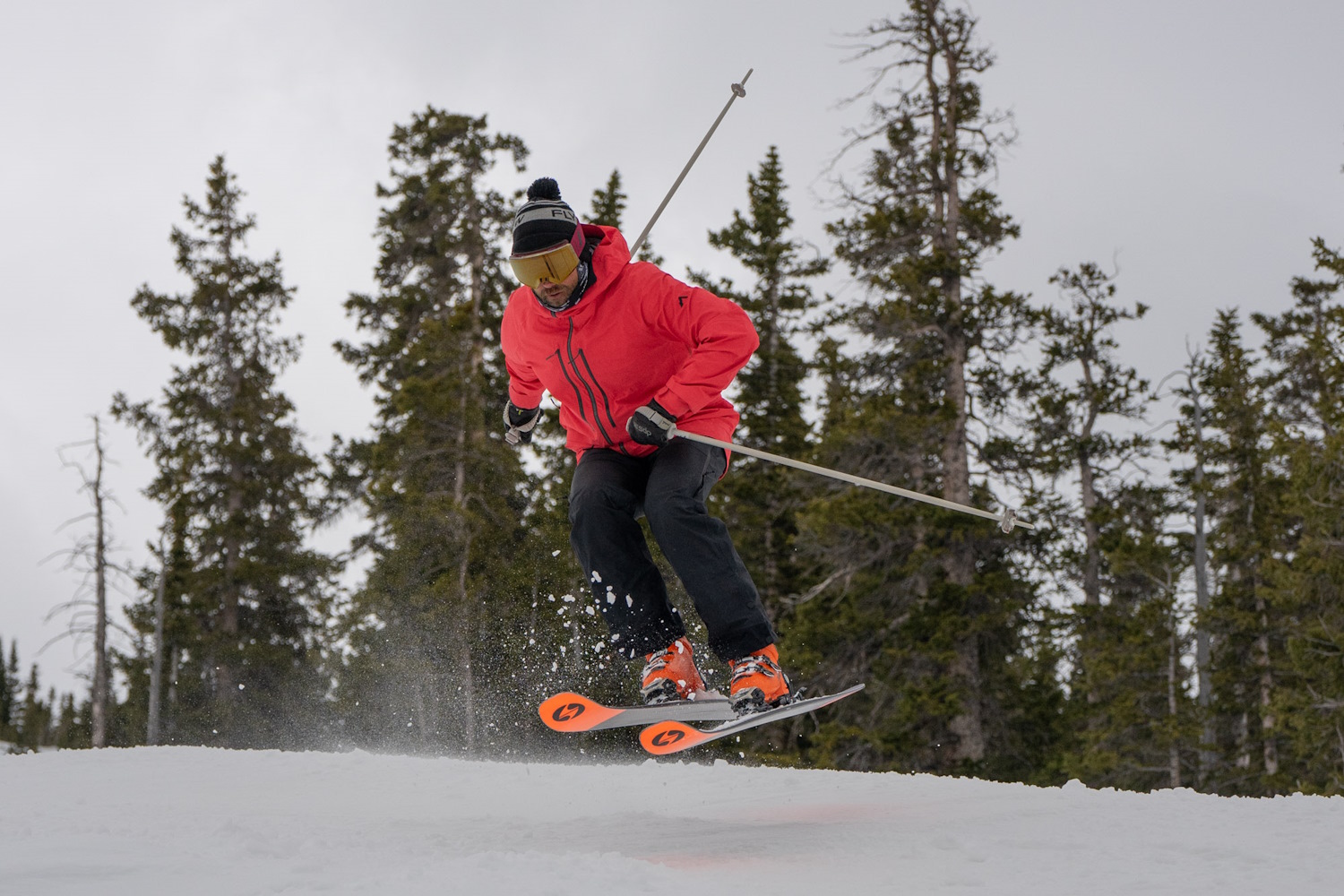
Fit: Strafe Nomad 3L Ski Jacket
Strafe describes the Nomad as a “freeride” fit. If that doesn’t mean anything to you, it has a hem that goes well below the waist. There’s room in the body and arms. And there are longer arms, so the fabric doesn’t bind you when you start getting wild on the snow. I’ve worn baggier jackets, but it’s also a bit more spacious than my usual touring jackets, which are more form-fitting.
Overall, the fit is a good balance — much like the jacket overall — between what’s ideal for the resort and what’s ideal for backcountry. While touring in the Nomad, I wasn’t overwhelmed by extra fabric. But it felt like more than what I needed when constrained by a backpack and subjected to the repetitive arm swinging uphill. On the resort, the fit was exactly what I wanted.
The hood fits easily over a helmet. The one-hand-operable cinch clamps down appropriately over a ballcap or beanie, as well. There’s an internal raglan sleeve with thumb holes that I enjoyed for the resort and could’ve done without touring since it felt like it kept heat sealed inside.
My 6’0” inch tall, 190-pound, somewhat chesty build fit easily in a size large. I probably could’ve sized down to a medium if I wanted a more tailored fit for the backcountry. As someone who hates apparel that restricts my skiing, I was glad to err on the side of a bit big.
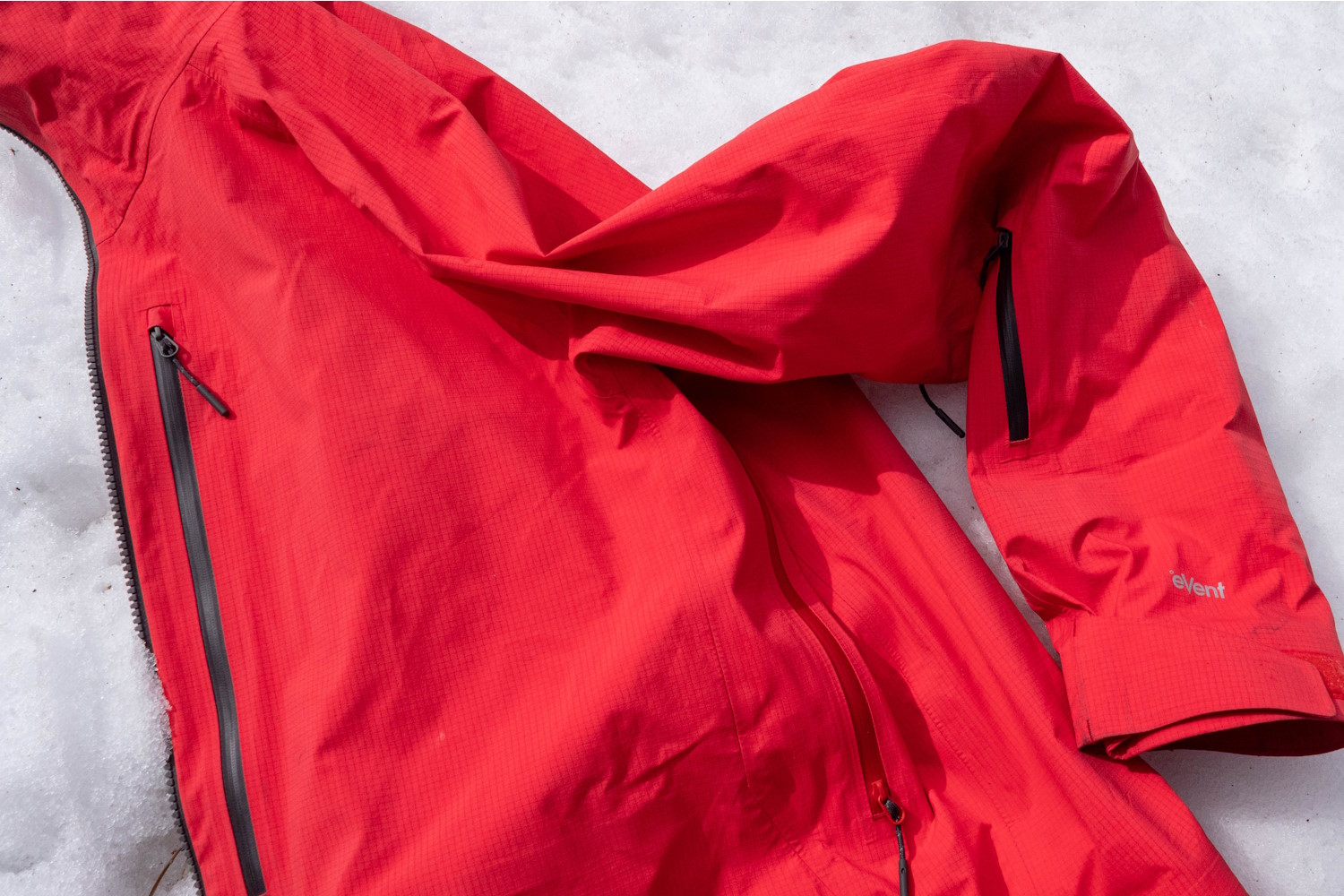
Pockets and Features
Bells and whistles are usually secondary concerns for me when evaluating a ski jacket. But I did appreciate the number, size, and placement of the pockets on the Nomad.
There’s an inside mesh stash pouch, as well as a zippered mesh pocket for securing phones, keys, and other small items you’d prefer not to lose.
Importantly, there are at least four exterior pockets big enough to accommodate folded-up skins. (I ski a 120mm-width backcountry ski in a 190 length. Splitboard skins may be fatter, but the lengths are shorter.)
Even when on the resort, I appreciated the oversized pockets. I’m always frustrated by minimalist pockets that are just barely big enough to hold things like a phone, forcing you to fumble to zip it around the item just so. Even if I’m carrying nothing more than a stick of lip balm, I’ll always prefer excess pocket space to not enough.
Not for nothing, there are some expected ski-specific features, such as a left-arm pass pocket and removable powder skirt. I wear bibs and the Nomad is long enough that I never felt I needed the skirt, but it does have the option, which can be nice as a seal against cold air on breezy days, if nothing else.
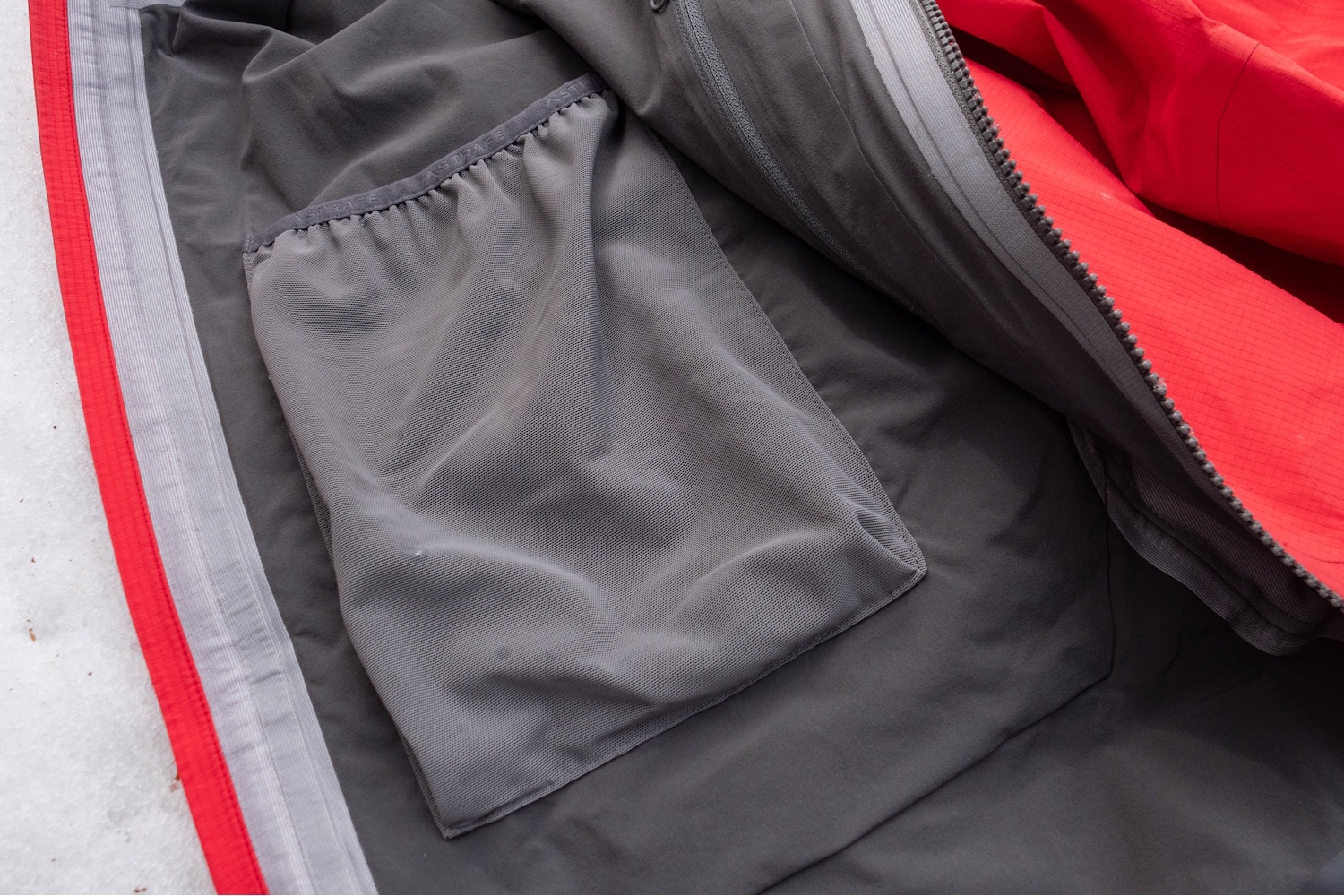
Strafe Nomad 3L Jacket: Conclusion
The Strafe Nomad 3L Ski Jacket is a true 50/50 backcountry and resort crossover shell. Unlike other “breathable” ski shells, the Nomad’s air permeability means you’ll need to do less layering up and layering down when ski touring in the backcountry.
Not being as heavy as other 3L ski jackets means it’s cooler, so you’ll need to be dialed on layering to make it work year-round, especially at the ski resort and in blustery, frigid conditions. But if you do it right, you can wear the Nomad no matter where and when you’re getting out on the snow.
To see where the Nomad fits into the broader landscape of ski jackets, check out our GearJunkie Ski Jacket Buyer’s Guide.
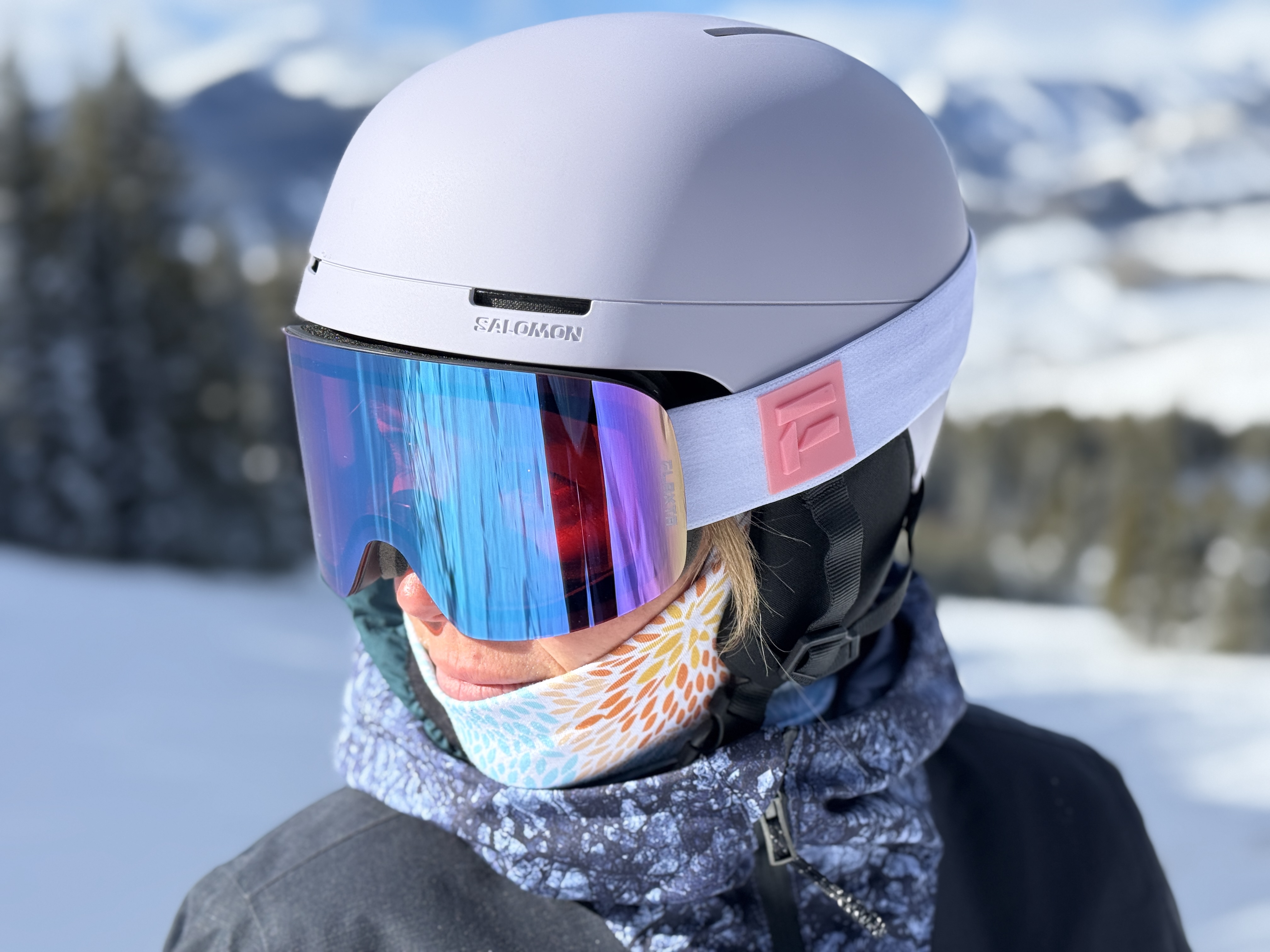
The Best Ski Goggles of 2026
Searching for the best budget ski goggles or best magnetic lens system? We’ve got you covered with our vetted collection of eye protection for skiers.
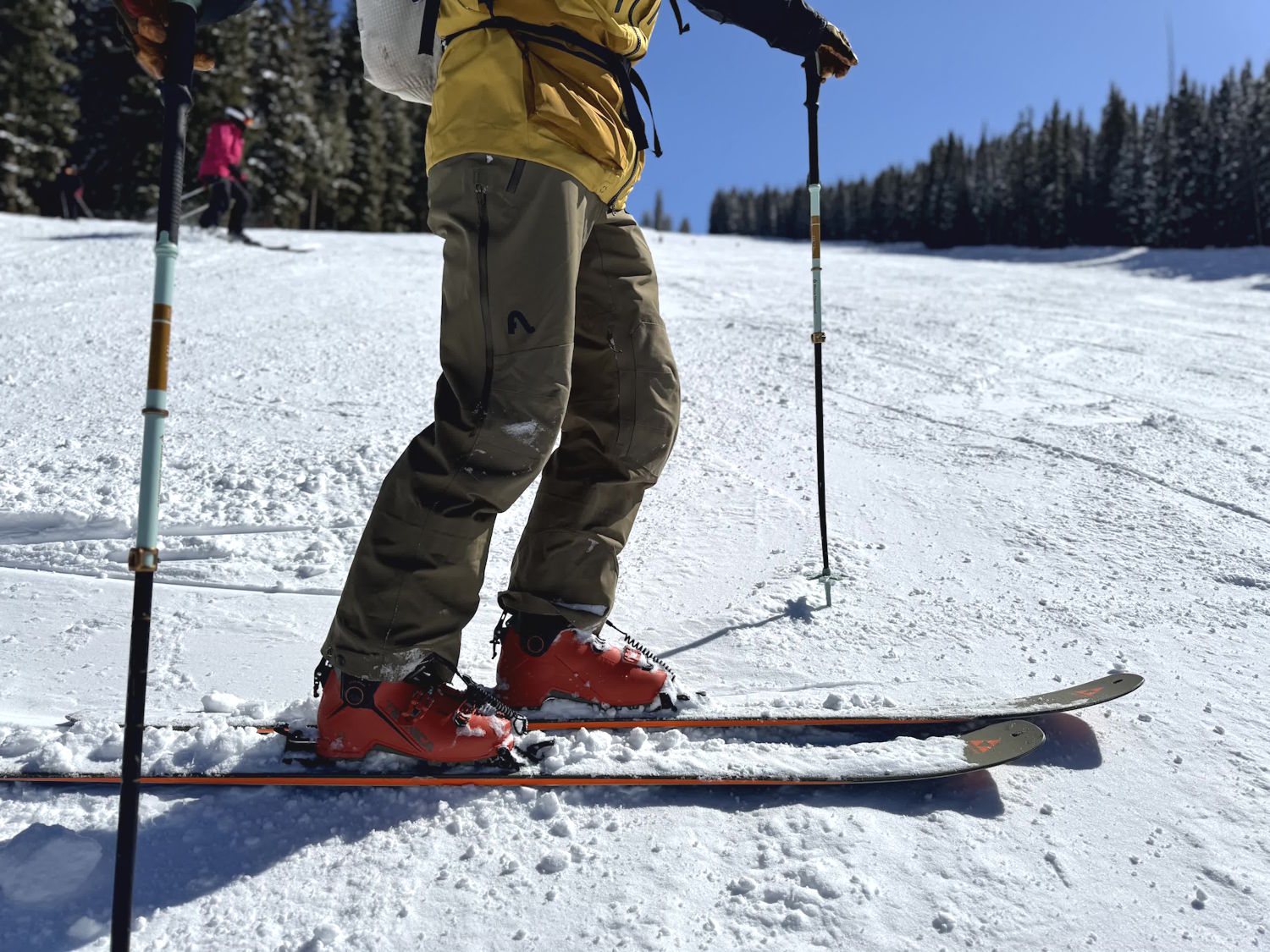
The Best Ski Pants of 2026
For warm spring skiing or frigid lift rides, we tested the best ski pants for a range of conditions including Flylow, Patagonia, and more.
